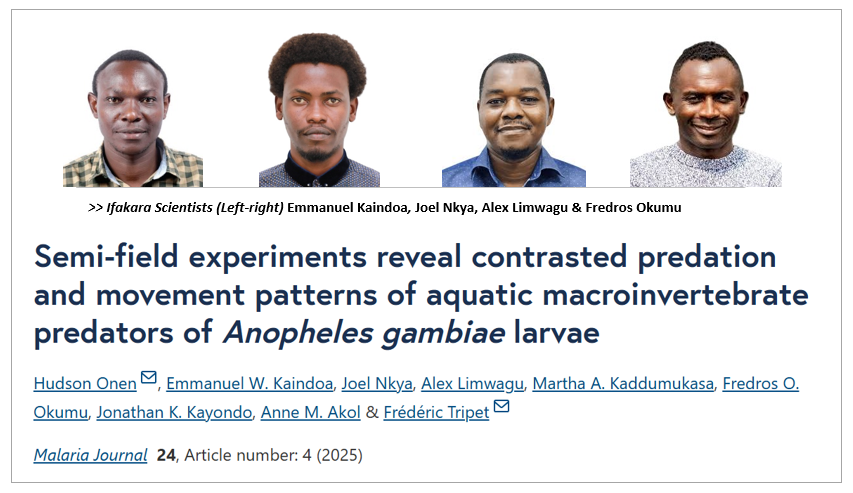
VECTOR CONTROL: Study backs insects as eco-friendly malaria fighters

A team of Tanzanian and international scientists has discovered that certain aquatic insects—common in natural water bodies—could play a significant role in reducing malaria-carrying mosquitoes.
The study, published recently on Malaria Journal, explored how diving beetles, backswimmers, and dragonfly nymphs prey on the larvae of anopheles gambiae, the primary mosquito species responsible for spreading malaria in sub-Saharan Africa.
How the study worked
Conducted in a semi-field system in southeastern Tanzania, the experiments mimicked real-life aquatic environments. The researchers observed how the predators behaved in response to the presence of mosquito larvae and different habitat sizes.
The study found that dragonfly nymphs and backswimmers were especially effective at consuming mosquito larvae when present in aquatic habitats. Diving beetles, on the other hand, demonstrated adaptive survival behavior by flying from areas without prey to those with available food.
Overall, all three predator species—dragonfly nymphs, backswimmers, and diving beetles—contributed to a significant reduction in mosquito larvae numbers over time, highlighting their potential as natural allies in mosquito control efforts.
Natural insect predators can help
The findings suggest that natural insect predators could be integrated into mosquito control efforts, offering a sustainable, low-cost alternative to chemical insecticides. This approach may especially benefit communities where malaria remains a serious public health challenge.
Ifakara, international collaboration behind the study
The study features major contributions from researchers at the Ifakara Health Institute, including: Emmanuel Kaindoa, Joel Nkya, Alex Limwagu and Fredros Okumu. In addition to Ifakara, contributing scientists came from the Uganda Virus Research Institute, Uganda; the Catholic University of Health and Allied Sciences, Tanzania; Makerere University, Uganda; Swiss Tropical and Public Health Institute, Switzerland; and Keele University, United Kingdom.
Read the full article here.
